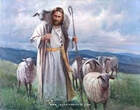 This Sunday is sometimes facetiously called "Sheep Sunday" by ministers, because on this Sunday, every year, the messages preached are similar to the scripture we read in John 10, with his description of Jesus as the Good Shepherd, and the Psalmist's song: “The Lord Is My Shepherd”. So, I wondered, as I read these words, why sheep? Why not eagles? I can picture us as eagles, soaring high up in a gorgeous blue sky, instead of mobs of daggy sheep, wandering aimlessly in some dusty paddock. The prophet Isaiah writes ... “They who wait for the Lord shall renew their strength. They shall mount up with wings like eagles, they shall run and not be weary, they shall walk and not faint” (Isaiah 40:31). That sounds good - that's what I’d like to have on a wall plaque. Why not call ourselves “eagles”? Why do we have to be “sheep”? But then I have to be honest with myself - and think that maybe it's because our prayer of confession got it right when it says: “... we have erred and strayed from God's ways like lost sheep. We have followed too much the devices and desires of our own hearts ...” and so on and so forth. We seldom soar, like eagles, but we often act like sheep. We’ve all erred and we’ve all strayed - like lost sheep. I know that…. You know that…. and the Bible tells us that, and it uses it as a metaphor for the reality of our lives. Lives we live together in our families, at our work, in our community, in our church - every day. It’s interesting that the sheep metaphor finds its meaning in the fact that sheep are communal, by their very nature. As a matter of fact, we don’t even have a word for one sheep. The term is always understood to be both singular and plural. We're in it together, and together we’re shepherded by our Lord and Saviour, Jesus Christ. That's a good corrective to the excessive individualism of our day that leaves so many of us feeling very much alone in the presence of almighty God. More like a sheep at the mercy of a predator, than a lamb in God's arms of protection. Protection - provided in Jesus' story by the sheep being together in the sheepfold - not just in his willingness to go out into the wild to find them. The well-known children's poem says, “Mary had a little lamb.” And the classic picture of Jesus, the good shepherd, has him carrying a single lamb on his shoulders. But the biblical picture has him surrounded by an uncountable flock of sheep, not just one. To paraphrase the children's book by Wanda Gag, “there are sheep here, sheep there, sheep and little lambs everywhere; hundreds of sheep, thousands of sheep, millions and billions and trillions of sheep. All being sheep and all in need of a shepherd.” We can see that the language in John's gospel is reminiscent of the 23rd Psalm. What is eloquently sung there about the Lord's care, guidance, and protection of the flock is here, in John, reaffirmed in terms of Jesus. I did a little research and found a book called “Approved Practices in Sheep Production”, which says that in caring for sheep, and I quote: "Most important is that ...continuous attention (is) required. Sheep are often quite helpless and fall easy prey to predators, especially dogs, coyotes, foxes, bobcats, and eagles. They might even fall prey to such hazards as wire fences, or to ditches and gullies in which they might lie and suffocate unless aid came quickly. Parasites and disease are also ever-present problems to guard against." The book says sheep have a lot of problems. Well, so do we! The book says sheep face a lot of dangers. And so do we. The book says sheep are best tended together, and so are we, says the very clever book that we call the Bible - with its image of God as our shepherd. But what about us? The image of the sheepfold and us as the sheep, is not intended to make us feel sheepish, dumb, or individually unimportant. Rather, it’s intended to reinforce the importance of each one of us to the shepherd. The sheepfold, whilst constraining and confining and sometimes crowded, is not claustrophobic. Rather, like with children, the setting of boundaries gives us security, by knowing how far we can stray, and what can get at us, it frees us to live life as God intends: to live each day to the fullest - just what Jesus meant when he said, "I came that they might have life, and have it abundantly" (John 10:10 NRSV). In this world, where the closest most of us will ever get to a sheep is in a book, or on TV, or by touching the wool in our suits, skirts, slacks, or socks, we still need a shepherd, who will lead us and guide us and occasionally prod us to show us the way we should go. And the good shepherd, who gives his life for the life of the sheep, for your life and mine - that we might live and have life abundantly, is Jesus Christ. Aren’t we blessed by our ever-loving God! It’s often said that we are “blessed to be a blessing” and that means that we should use all the love and grace that God has given us, to go out into our world and share that love with others. Let them know that God wants to have a personal relationship with them, too. Then let the Holy Spirit work on them to bring them around. Do your bit and plant the mustard seed. Others will water and nurture it, so that it, too, will grow into a mighty tree. We’re in uncertain times, but that feeling of restriction will be going away soon. What, then, should we focus on? How should we make the most of our time? Think about these things, as you go about your daily business today, next week, next month, next year. And then do your best to take advantage of the opportunities to witness, which God puts in front of you. Amen. Pastor Rick
0 Comments
Reflections This Week: ANZAC DAY (Saturday 25th April) On this day we commemorate the anniversary of the first major military action fought conjointly by the Australian and New Zealand Army Corps (ANZAC), during the First World War. These forces, along with others from the British dominions, landed on the beaches of the Gallipoli Peninsula, early on the morning of April 25, 1915. Their objective was to engage and defeat the Turkish opposition, in order to open the Dardanelles to the allied navies. The ultimate objective was to capture Constantinople (now Istanbul), the capital of the Ottoman Empire, an ally of Germany. The campaign was short lived and did not achieve its objective. The successful evacuation of Anzac Cove began on 15 December, with 36,000 troops withdrawn over the following five nights. The last party left in the early hours of 20 December. Some British and French forces remained at Helles until 8-9 January 1916. The first ANZAC Day commemorations were held on 25 April 1916. The day was marked by a wide variety of ceremonies and services across Australia, a march through London, and a sports day in the Australian camp in Egypt. In London more than 2,000 Australian and New Zealand troops marched through the streets; a London newspaper headline dubbed them “the knights of Gallipoli”. The day has been celebrated every April 25 since then. Some may call it strange to commemorate such a day, when so many brave service men and women gave their lives in what seems a futile campaign, but that is exactly the point. We’re not commemorating war, as such, but the heroism of those who then, and in many campaigns and wars since, unselfishly gave up their lives, so that we may live in peace. Lord, this day we pray for all those service people who defended, and are still defending, the honour of our country. May those whose lives were lost, rest in peace, in your care. 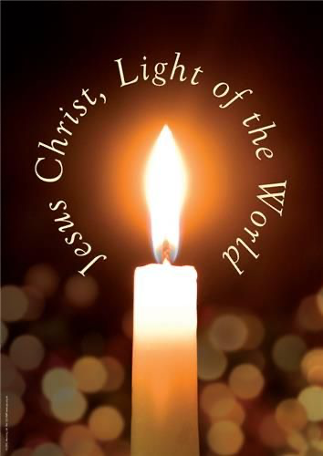 Lest We Forget. 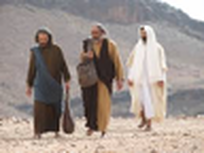 ________________________________________________________________________________________________________________ EASTER 3: The Road to Emmaus Psalm 116:1-4 & 12-19 Luke 24:13-35 Acts 2:14a & 36-41 1 Peter 1:17-23 Although my major focus this week is based on Luke 24:13-35, I encourage you read it first, but after reading this reflection, then also read the other readings from the Revised Common Lectionary. The “road to Emmaus” is one of our best-loved passages in the bible. It resonates with our own sense of holding doubts and yet still being met by Christ on the road, to be renewed and recalled into faith. For us, it also provides wonderful images of Jesus, the Risen One, who meets us on the road wherever we are (and not just in set-aside religious events); who meets us in our doubts; and whom we find again in the breaking of bread together. If you’ve ever been on a return journey, be it by vehicle, or on foot, you’ll probably have noticed that the way back is a totally different experience to the way out to your destination. It can appear to be faster (as you start noticing familiar landmarks), but it can also be more than just a retracing of one’s steps. Perspectives have changed and things don’t always look the same from a different direction. So, too, for the two disciples, trudging wearily toward the town of Emmaus, on the third day after the death of their teacher, master and leader, Jesus. They’d heard from Mary and the other disciples, that their Lord was not in the tomb where he’d been laid, but they weren’t there when he returned from the dead, and appeared before the eleven, just as he had told them he would do. Instead, as they walked on dejectedly, they were approached by someone whom they were prevented from recognising. This person asked what they were discussing, as they walked along. Oblivious to who it was, they proceeded to tell him the story of Jesus, his life and deeds and how he had been executed at the behest of the Jewish religious leaders. It was only when they supped together that their eyes were opened to the fact that this was Jesus, breaking the bread for them. But then he disappeared from their view. How different their journey back to Jerusalem must have seemed to them. They were now full of excitement (“hearts burning within them”) and they could not wait to share this good news with their friends. These friends were the same people, who only last week, we discussed as being full of fear, anxiety, confusion, grief, disappointment and loneliness. How would they have gone about processing all their feelings in such a storm of uncertainty? Could they ever replace this pervasive fear with confident hope? Forward to this week and we know that they’ve wrestled with things emotionally, but intellectually, and finally made sense of it all. Jesus WAS ALIVE! He appeared before them a number of times and let them touch his body, to confirm that he wasn’t an apparition. One of the things they probably wondered was why God would have allowed his Son to suffer in such a way. And I guess they would have asked the question: Where do we go from here? The pilgrims on the road to Emmaus give us some clues. What to us, seems impossible, is entirely in God’s hands. Our task is not to wallow in our own self-pity of worry and doubt, but to get out there on the road and meet the risen Christ, who will reveal himself to us in simple ways. Next week, we’ll see what Jesus told the disciples (and us) that we should do with our time on earth. My favourite verse comes from Psalm 116:12 “What shall I return to the Lord for all this bounty to me?” God has given us everything and all he asks of us is to love him and love our neighbours as ourselves. Until we meet again, stay safe and well, cradled in the hands of the Risen Saviour. Saint Augustine said: “You have made us for yourself O Lord, and our heart is restless until it rests in you.” Vaya con Dios (travel, or go, with God) Pastor Rick Reflection: I’ll be focussing on John 20:19-31 in this reflection, but I encourage you to also read the other passages after going through this reflection. In the midst of the disciples’ fear for their own fate and their confusion at Mary’s testimony, Jesus appears to them. “Peace be with you” says Jesus to his disciples. Now, peace was probably the last thing they were thinking about at that stage. After all, they’d just been on a huge roller coaster ride which included:
They surely were so confused and scared, not knowing where to turn, or what to do, that peace was EXACTLY what they did need. As the Risen One, Jesus still bears the scars of his crucifixion, the marks of his death. Here Jesus offers them his peace, and his mandate, “As the Father has sent me, so I send you,” (v21). This peace that bears scars and this sending that will not avoid the cross, is now ours. 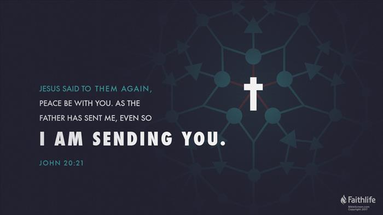 To top it off, Jesus tells them that he’s sending them out into the world with something called “the Holy Spirit” to guide and protect them. All was coming to a fulfilment. Jesus had assured them earlier that he would bring them comfort and joy (John 17:12-13). He would give them an advocate, "the Spirit of truth who comes from the Father" (John 15:26). And with that Spirit, he would send them into the world to continue the work and spread the message so, in the words he used when praying to His Father, "that the world may know that you have sent me and have loved them even as you have loved me" (John 17:23). Now, in their presence, Jesus breathed on them and they were touched with the Holy Spirit. At the time of the appearance of Jesus, the disciples were a closed, inward looking group, locked away in a closed room, but he turned them into an open team of missionaries, sent out into the world. Could this time be the time that we acknowledge as the birth of the Christian Church? The time when a body of believers first met and were told that their mission was to go into all the world and spread the good news, the Gospel of Jesus Christ. The disciples were told to go out and forgive people’s sins, just as Jesus had forgiven sins when he was in his 3 years of ministry around Galilee and Jerusalem. He even laid it on them that if they didn’t forgive the sins of others, then their sins would not be forgiven. Quite a responsibility for a bunch of simple fishermen, tax collectors and the like. Could they do the same work as Jesus had done during his ministry on earth? Would it work, or would the people just scoff at them, or worse still, stone them for blasphemy? Speaking of scoffers, there were, and still are today, those who wouldn’t believe that Jesus and died and risen from the grave after 3 days. 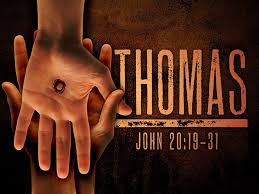 In fact, even one of the 12, Thomas, refuses to believe that Jesus is alive, as he wasn’t in the room when Jesus first appeared to the disciples. The words he uses are: “Unless I see the nail marks in his hands and put my finger where the nails were, and put my hand into his side, I will not believe.” Not an unreasonable assertion, given the circumstances and one that you and I would probably make too. Even the disciples seem unable to recognise Jesus the first time he appears before them. It wasn’t until he shows them his hands and side that they recognise him. Does that make Thomas a “doubter” - or a realist? He saw Jesus nailed to the cross and he saw him die. So, you really can't blame him for wanting a real encounter with a really risen Lord, just like the other disciples had encountered. When you read through the resurrection accounts of all four gospels, you quickly realise that Thomas is not alone in his doubt. In fact, doubt isn't the exception but the rule. None of them anticipates the return of Jesus and when he shows up, everyone doubts. Jesus then appears a week later, in the same room and he doesn’t chide Thomas, but allows him to put his fingers in the nail holes and his hand in the gash made by the centurion’s spear. Then Thomas utters the words that show he finally understands: “My Lord and my God!” Jesus then declares: “Because you have seen me, you have believed; blessed are those who have not seen and yet have believed.” Isn’t that what “faith” is all about? I mean, we weren’t there 2,000 years ago, yet we believe that the events occurred and were faithfully recorded and passed down through the ages. Like Thomas, we’d like to be able to have some physical signs of God’s presence. But, instead, we must rely on our faith and be part of the greater number who “have not seen and yet believe”. So to all the scoffers, I say that there must have been a cataclysmic event that changed the scared, hiding disciples into bold advocates for the Gospel – the good news about Jesus. I believe that it was this meeting with the risen Jesus, and the receiving of the Holy Spirit, that gave them the courage to go out there. Most of them ended up being killed for the words they spoke. Would they have done that if the Easter message had finished on Good Friday, with their leader being crucified? I think not. I like to think of us as Resurrection people - that is - people who don't need to have it all figured out before coming to church, or before helping out a neighbour, or feeding someone who is hungry, or caring for someone in need. If we have to figure it all out ahead of time, then we'll never get started. So, can you remember, when was the last time Jesus brought peace to you? Close your eyes for a while now, so that you can feel the peace of God flowing over you. We’re sent by God into the world, entrusted with the gospel message, called to share the story of Christ with all. The resurrection has changed everything and death itself is overcome. But we are not removed from the contest, nor are we promised the avoidance of suffering. Jesus is shown to truly be the Word of God and he will lead us ever deeper into life rather than away from it. Go in peace to love and serve our God, and may the love of God, the breath of Christ and the encouragement of the Spirit be with us this day and forevermore. Amen. Pastor Rick There are many readings to cover in these last 4 days of Holy Week (Thursday to Sunday). I encourage you to take your time and dwell on the words – meditate and see if they speak to you. Pastor Rick Maundy (or Holy) ThursdayREADING : John 13:1-17, 31-35 Maundy is derived from the Latin word for "command" and refers to the new commandment by Jesus, to the disciples, that they "Love one another as I have loved you." On this day we commemorate both the washing of the disciples’ feet by Jesus at the commencement of what is now known as “the Last Supper”, where Jesus ate his last meal with the disciples and his commandment to his disciples (and also to us) that we should love one another – as he loved us. Jesus also foretold that one of his disciples (Judas Iscariot) would betray his whereabouts (in the Garden of Gethsemane) to the Jewish religious leaders, so that they could arrest him, in private, away from the crowds. They were afraid that the crowds might turn on them, to protect Jesus. As Jesus prepared for the end of his life, we see this intimate scene of foot washing, which foreshadows the manner in which the shame of the cross will prove the moment of Jesus’ glory and Kingship. In this passage, Jesus takes on the role of a slave (washing feet) as one of his last earthly acts as their teacher and Lord. The contrast of service and leadership, shame and glory, is key to exploring the power of the cross for John. John’s timeline of Holy Week is a bit different to that of the other gospels (Matthew, Mark & Luke). John takes the view that, for devout Jews, it was not yet the time of the Passover feast (the night to start their Sabbath), so there is no bread broken and wine shared, in his narrative. The other three gospels do include the meal (which we know as the Last Supper) and therefore we celebrate both of them at this time, on Maundy Thursday. By following his command, the followers of Christ were set apart from other people of the day. See in v.35 “By this everyone will know that you are my disciples, if you have love for one another” Christians (known then as the “People of the Way”) showed a kind of love that was quite different to that exhibited by others in the Jewish, Roman & Greek worlds. Can we, today, recognise the love of God in our service - and in the midst of our suffering? Can we sit within the presence of God, even in the shadow of death? I pray that our church is seen as one that willingly shares its love with those around it. Amen Good FridayREADING : John 18:1-19:37 Some people ask, “Why is it called “Good” Friday? It certainly wasn’t good for Jesus.” Superficially, that appears to be so, but his final words, often quoted as “It is finished”, could also be interpreted from the original Greek text as “It is completed.” That is, his Godly work, whilst he was here on earth, had been done. We know that his trial was a mockery of justice - even the Romans could see that Jesus had done nothing wrong. He shouldn’t have been tried and executed. It appeared to be a beat-up by the Jewish religious leaders. This day was all part of God’s greater plan. Jesus had to die, so that we could live. His death was the price he had to pay, so that our sins could be forgiven. And it’s not like we’re distant spectators – just watching this grizzly scene from afar. Instead, we’re right there with him, feeling the pain that he must have been suffering. He’s paid the price for our sins – an atonement that we’re unable to achieve on our own. The very people he had come to save, had turned their backs on him and called for his execution. Are we also guilty of turning our backs on him today? Lord God, we open ourselves to your pain and anguish – your supreme sacrifice for us. Restore us to a right relationship with you, we pray. Amen Easter Saturday We know that Jesus died at noon on Good Friday and rose on the morning of the third day (Easter Sunday), as had been prophesied in the Old Testament scriptures. But what happened in between? By reading the Apostles’ Creed, we know that he descended to the dead and on the third day, rose again. On Easter Saturday, we remember that time – the time between death and resurrection. READING 1 : Lamentations 3:1-9, 19-24 Easter is powerful, hope driven, and a celebration of life and God’s love. It’s also a moment when we can feel the weight of loss and grief. Shadows drawn sharper by the strength of the light. For some of us, this will be a time when the wounds inflicted upon us in the past may bite in unexpected ways. The loss of loved ones, life’s unwanted surprises, and even the fear of what may yet come. Easter Saturday is a moment to sit “in between”. To acknowledge the pain of our lives and to not be rushed into solutions and quick fixes. We can sit within Lamentations Chapter 3 as we see our wounds, feel our loss, and yet somehow still recognise the God who is present with us and who loves us. READING 2 : Psalm 31:1-4, 15-16 This psalm of David is meant to be sung - he addresses it to the Director of Music. David calls out to God to hide him, listen to him and to save him. It was probably penned when David was in hiding from King Saul. But even in the depths of his despair, he recognises the strength of his Lord and the weakness of himself, by putting all his trust in God to save him. He concludes the psalm with praise and triumph, giving glory to God, and encouraging himself and others to also put their trust in him. READING 3 : John 19:38-42 In this reading, we see the love that people had for Jesus. Joseph of Arimathea was not one of his closest disciples, yet he loved his Lord so much, that he was prepared to give up his own burial crypt to lay Jesus there. Another believer, Nicodemus, assisted Joseph to prepare the body of Jesus for burial. But where were the closest followers of Jesus? Hiding for fear of their lives. They believed that the Jewish religious authorities would come for them next. It fell on Joseph and Nicodemus, both members of the Jewish Sanhedrin (the group that had brought the charges against Jesus), to give the body of Jesus the respect it deserved. Why would they have done this? Perhaps guilt in being part of the group who sent Jesus to the Romans for execution. Perhaps just a realisation that he was the true Messiah. READING 4 : 1 Peter 4:1-8 Peter reminds us that we must arm ourselves with the same intentions that Christ had, when he allowed himself to be crucified. Giving up our human desire and focussing on our lives together when we are reunited with those who’ve gone before us. In all things, Peter exhorts, maintain constant love for each other, just as Christ commanded. Easter SundayREADING 1 : John 20:1-18
READING 2 : Acts 10:34-43 This is the day that makes more sense of the Easter (Holy) Week for us. There are many ways in which we can approach the wonder of Easter Sunday. Sometimes in our rush to resolution, we can miss the nuances that John provides us with. Consider Mary’s experience. She seeks to provide honour and dignity for Jesus in his death (v1), however even this is denied to her as she confronts the shock of the empty tomb. While the other two disciples come and go in a whirlwind, Mary is rooted to the spot in grief (v11). Her exclamation in v13 mirrors the grief that many who have lost their initial faith feel, “They have taken away my Lord, and I do not know where they have laid him.” It’s only through this experience of loss and grief – Jesus is not who I thought he was – that Mary, and indeed many of us, can come to see the Risen Christ among us. Perhaps Easter can be approached as a faith in Jesus that emerges out of our fears and doubts, rather than pretending they no longer matter. Please join me now in prayers for all who are struggling through his time. Missing out on their expected Easter holidays, their time to be with family and friends. Lord God, we place our trust in you and believe that you have us safe in the palm of your hands. Like the pain and suffering of the Easter cross, bring us safely through to the belief, hope and salvation of resurrection Sunday. Amen Pastor Rick Reflection: Hands up if you have the feeling that you’re “stuck inside”? I believe that it can all be just a matter of perspective. Doesn’t it sound more positive to say that you’re “safe inside”? Many of us are at a stage in life where our immune systems aren’t functioning as well as they did when we were younger. That makes us more vulnerable to having a severe reaction if we are exposed to the COVID-19 virus. Therefore, we need to stay away from places where we might come into contact with people who are infected with it. But take heart, the end of our enforced isolation is in sight – we just need very good vision to be able to see it. It’s a bit like the times when people are wishing and waiting for the Lord to re-appear. We know it’s coming - he told us he would do so - but we don’t know when. Does it help to worry about it? Not really. Will it happen any sooner if we worry about it? Definitely not. So, let’s be content with everything the good Lord provides for us and constantly give him thanks. In our Lenten journey towards the Cross of Easter, we’re at the point of the triumphal entry of Jesus into the holy city of Jerusalem. It’s the day we call Palm Sunday, because the people were waiving palm branches and shouting “Hosanna! Blessed is he who comes in the name of the Lord.” Matthew 21:1-11 tells us the story of how Jesus came humbly into the holy city, riding on the back of a young donkey – not at all like the Messiah the people were looking for. To quote my nephew (Rev. Andrew Johnson) in the current Insights magazine: Jesus’ entry into Jerusalem at the beginning of Holy Week is packed with symbolism. Despite having made the coming confrontation and death explicit to the disciples (and to us readers), the key question here is still, ‘who do you say that Jesus is?’ Andrew asks some interesting questions of us and it’s fortuitous that we have more time on our hands now, to be able to give them due consideration. That’s a positive.
As I’ve always believed that there are two sides to every situation, let’s try looking at the benefits of our time of physical isolation and not just the negatives. Finally, I paraphrase what a wise friend of mine said recently: “Let us pray that when the dust settles, we realise how much we actually have, how little we really need, and that the human connection, through community, is the most important of all.” Join me now in a silent prayer for those who are struggling at this time, needing a hug, but who are unable to receive it from us. Pastor Rick |
Pastor
|
LANE COVE
|
Worship Service:9:30am Sunday
© Lane Cove Uniting Church | 2020
|


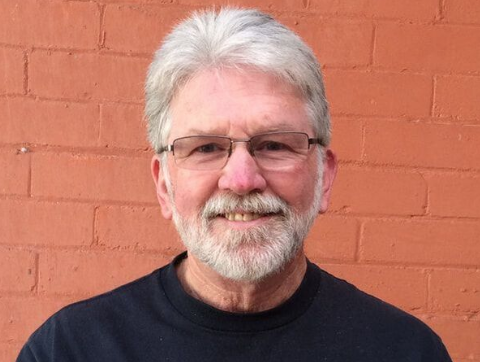
 RSS Feed
RSS Feed